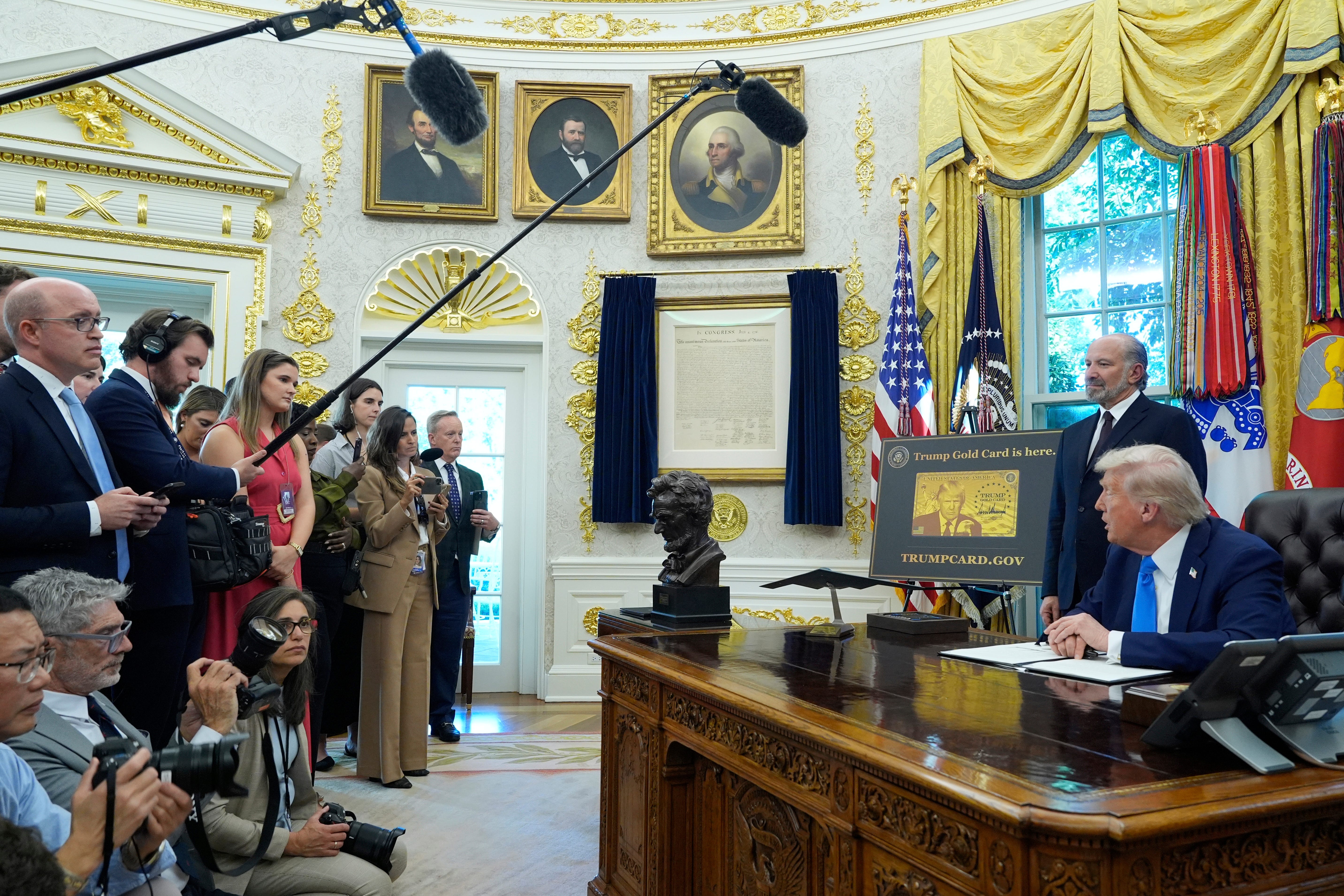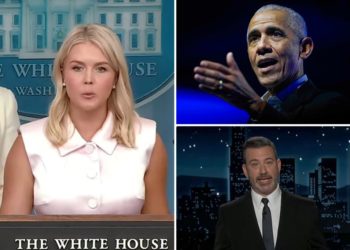
Alex Brandon/Associated Press
- President Donald Trump’s executive order on H-1B visas caused confusion for workers and employers.
- It was initially unclear who would be affected. The White House clarified that it was only new applicants.
- “There’s a lot of panic by employers,” one immigration attorney told Business Insider.
A White House order on H-1B visas has sent immigration and employment lawyers scrambling for answers.
Uncertainty over the scope of the order, which imposes a $100,000 fee on H-1B visa applicants, led many lawyers — and some major employers — to advise visa holders outside the US to return before the fee was set to go into effect on Sunday.
Attorneys told Business Insider they struggled to advise clients amid the confusion caused by the sudden order, which was announced at the end of the day on Friday and which they said lacked details.
A White House official told Business Insider on Saturday that the visa changes will only affect new applicants, though the executive order issued Friday evening does not clearly state that, and Commerce Secretary Howard Lutnick initially said it would include current visa holders.
In a Saturday afternoon post on X, White House press secretary Karoline Leavitt further clarified that the fee would represent a one-time cost and that it wouldn’t apply to current visa holders — and that those with visas who are outside the US wouldn’t be charged to re-enter the US.
“There’s a lot of panic by employers in myriad situations,” Jason Finkelman, an immigration lawyer based in Austin who has clients throughout the US, told Business Insider.
Finkelman said that beyond advising clients to get back to the US before Sunday, he has little concrete counsel to offer.
“When you issue these vague executive orders, it causes chaos and confusion,” Finkelman said.
A day of questions
Finkelman expects legal challenges to the order. At the same time, he said, it’s uncertain whether prior Supreme Court rulings that made it harder for judges to issue nationwide restraining orders could complicate efforts to bring about a broad injunction by opponents of the order.
Finkelman also said he’s getting questions from employers about what mechanism they would use to pay the $100,000 and whether companies would get that back if the executive order is reversed.
“The answer is, ‘I don’t have any answers to that.’ No one really has any answers to that because the guidance is not clear,” he said.
Sophie Alcorn, founder of Alcorn Law in Palo Alto, California, whose clients include venture capital firms and small startups, said she’s fielding inquiries from employers about new hires waiting to come into the country and teams traveling for business that can’t get back in time because of a lack of available flights.
“They’re trying to figure out if they need to be resigned to indefinitely losing an employee who’s not able to come back in,” Alcorn said of some employers she advises.
Alcorn said smaller companies and startups could be hit hard by the change if they find the $100,000 tab prohibitive. By comparison, she said, Big Tech could absorb the cost for some workers.
“It’s bifurcating between the large organizations that can afford to basically pay to play and bring in whomever they would like, and then the small and medium-sized businesses and the early-stage startups,” Alcorn said.
Finkelman said there wasn’t sufficient clarity around the proposed “national interest” provision in the order, which could, it appears, let companies sidestep the $100,000 visa fee. He said clients were asking how they might do that.
Peter Rahbar, an employment attorney who founded the boutique firm the Rahbar Group in New York, told Business Insider that even among the tech heavyweights, the cost would likely dissuade some hiring. He said that if it remains in place, big companies could shift work overseas to where the talent is.
“There are not enough people in America to provide these resources, and they’re just going to go to other countries,” he said of companies in search of skilled employees.
Rahbar said that while the biggest impact would be in tech, other parts of the US economy aren’t immune to potential fallout from the H-1B changes. He said that it’s unlikely that medical workers, for example, who might not earn $100,000 a year, would have employers willing to fork over that amount to have them in the US.
Healthcare workers represented 4% of approved H-1B petitions in fiscal 2024, according to an April report by the US Citizenship and Immigration Services, a federal agency. The category of professional, scientific, and technical services accounted for 48% of authorized H-1B visas.
Getting back in time
Shaun Foster, an immigration attorney at PampaninFoster near Boston, told Business Insider that he’s been fielding questions from at least a half dozen clients — including in India and Spain — over what the changes to the visa program will mean for them.
Prior to the forthcoming changes, visa fees might have ranged from about $2,000 to $4,000 per case each time an employer had to file. That typically happened every three years.
“The fees that we already pay are substantial,” he said. Foster said the fees had long been intended as a means of covering the costs of the paperwork, not to serve as revenue generators, or to keep employers from bringing in skilled foreign workers.
President Donald Trump said the effort is designed to dissuade US employers from hiring foreign workers instead of Americans.
Foster said it was likely that in the Boston area, where he is based and where sciences and biotech are important economic drivers, the impact could be profound. He said it could hurt work in those areas.
“It’s life-changing,” Foster said, adding that it now appears the US is at a “crossroads” where Washington wants to depart from supporting those efforts.
He said he had been writing weekend emails to clients in India and thinking about how, in some cases, they would have had about 15 hours to make it back to the US in time. “I really don’t know if that’s possible,” Foster said.
He said the short notice before the implementation served to “unpredictably sow havoc into the system and just cause everybody to have to scramble.”
Leon Fresco, an immigration attorney and partner at Holland & Knight in Washington, DC, told Business Insider that it’s possible that companies urging visa holders to rush back to the US are overreacting, but because of the lack of clarity around the order, it’s difficult for employers to know how to proceed.
“The problem is this: The wording is very vague,” Fresco said.
Have a tip? Contact Tim Paradis via email at [email protected] or Signal at tparadis.70. Contact Brent Griffiths via email at [email protected]. Use a personal email address, a nonwork WiFi network, and a nonwork device; here’s our guide to sharing information securely.
Read the original article on Business Insider
The post ‘A lot of panic’: Lawyers race to decipher Trump’s H-1B visa fees appeared first on Business Insider.




